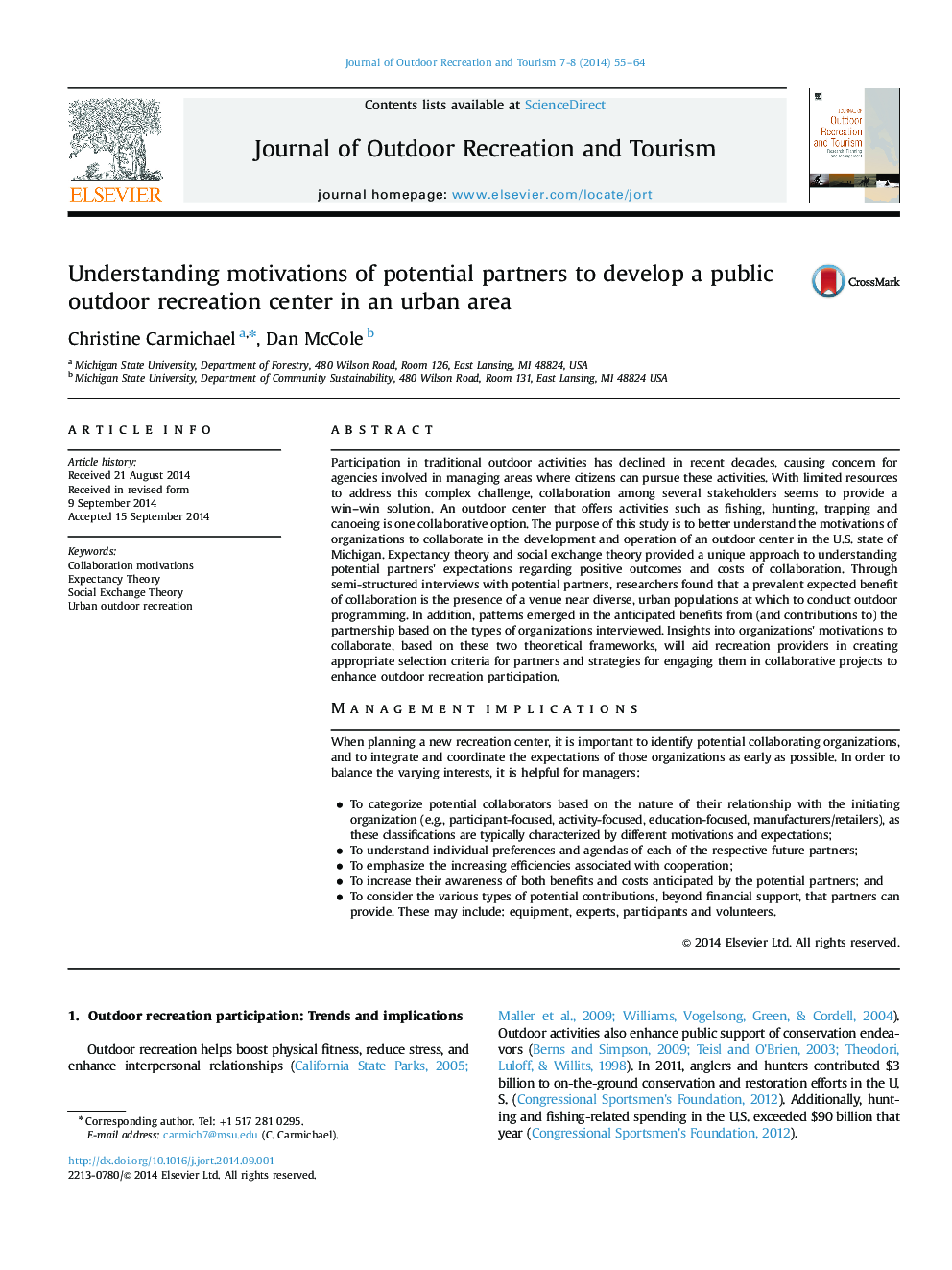| کد مقاله | کد نشریه | سال انتشار | مقاله انگلیسی | نسخه تمام متن |
|---|---|---|---|---|
| 92398 | 159954 | 2014 | 10 صفحه PDF | دانلود رایگان |
Participation in traditional outdoor activities has declined in recent decades, causing concern for agencies involved in managing areas where citizens can pursue these activities. With limited resources to address this complex challenge, collaboration among several stakeholders seems to provide a win–win solution. An outdoor center that offers activities such as fishing, hunting, trapping and canoeing is one collaborative option. The purpose of this study is to better understand the motivations of organizations to collaborate in the development and operation of an outdoor center in the U.S. state of Michigan. Expectancy theory and social exchange theory provided a unique approach to understanding potential partners׳ expectations regarding positive outcomes and costs of collaboration. Through semi-structured interviews with potential partners, researchers found that a prevalent expected benefit of collaboration is the presence of a venue near diverse, urban populations at which to conduct outdoor programming. In addition, patterns emerged in the anticipated benefits from (and contributions to) the partnership based on the types of organizations interviewed. Insights into organizations׳ motivations to collaborate, based on these two theoretical frameworks, will aid recreation providers in creating appropriate selection criteria for partners and strategies for engaging them in collaborative projects to enhance outdoor recreation participation.Management implicationsWhen planning a new recreation center, it is important to identify potential collaborating organizations, and to integrate and coordinate the expectations of those organizations as early as possible. In order to balance the varying interests, it is helpful for managers:
• To categorize potential collaborators based on the nature of their relationship with the initiating organization (e.g., participant-focused, activity-focused, education-focused, manufacturers/retailers), as these classifications are typically characterized by different motivations and expectations;
• To understand individual preferences and agendas of each of the respective future partners;
• To emphasize the increasing efficiencies associated with cooperation;
• To increase their awareness of both benefits and costs anticipated by the potential partners; and
• To consider the various types of potential contributions, beyond financial support, that partners can provide. These may include: equipment, experts, participants and volunteers.
Journal: Journal of Outdoor Recreation and Tourism - Volumes 7–8, December 2014, Pages 55–64
